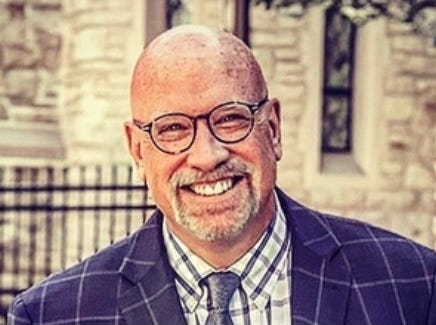In the sacred liturgy of the Catholic Church, the priest proclaims, "Lift up your hearts," to which the faithful respond, "We lift them up to the Lord." This ancient exchange, known as the Sursum Corda, is more than a ritualistic dialogue; it is a profound invitation to transcend earthly concerns and unite our hearts with the divine.
This call resonates deeply with the teachings of St. Augustine, who emphasized the transformation of the human heart as central to the Christian journey. Augustine's own conversion story illustrates the movement from a "heart of stone" to a "heart of flesh," a transformation made possible through divine grace.
In the contemporary context, Pope Leo XIV, the first American and Augustinian pontiff, embodies this Augustinian vision. His emphasis on the charism of hospitality reflects a commitment to opening hearts and fostering communion within the Church and the broader world.
The Augustinian Model of Heart Transformation
St. Augustine's theology centers on the heart as the seat of human desire and will. He famously wrote, "You have made us for yourself, O Lord, and our heart is restless until it rests in you." This restlessness signifies the human longing for divine union, a journey that requires the transformation of the heart.
Augustine teaches that true worship involves lifting the heart to God, moving beyond mere external observance to an internal communion with the divine. In his sermons, he exhorts the faithful: "Lift up your hearts. Why place we our hearts in the earth, when we see that the earth is being turned upside down?"
This lifting of the heart is not a solitary act but a communal ascent, reflecting the unity of the Church. Augustine's emphasis on communal worship underscores the importance of shared faith experiences in the journey toward God.
The Eucharistic Invitation: "Lift Up Your Hearts"
The Sursum Corda serves as a pivotal moment in the Mass, inviting the faithful to participate actively in the Eucharistic celebration. This call to "lift up your hearts" is an invitation to offer our innermost selves to God, allowing Him to transform our hearts through the sacrament.
In the Eucharist, we encounter Christ's sacrificial love, which has the power to change our hearts. As the Catechism of the Catholic Church states, "The Eucharist is 'the source and summit of the Christian life.'"
By responding to the priest's invitation, we acknowledge our need for God's grace to replace our hardened hearts with hearts of compassion and love. This transformation aligns with the prophecy in Ezekiel: "I will give you a new heart and put a new spirit within you; I will remove your heart of stone and give you a heart of flesh."
Pope Leo XIV and the Charism of Hospitality
Pope Leo XIV, formerly Cardinal Robert Prevost, brings a unique Augustinian perspective to the papacy. His early experiences in a family known for its hospitality to priests influenced his vocational discernment and pastoral approach.
As an Augustinian, Pope Leo XIV emphasizes the charism of hospitality, which involves welcoming others into a community of love and unity. This charism reflects Augustine's vision of the Church as a place where hearts are transformed through communal worship and mutual support.
In his first address as pope, Leo XIV highlighted the importance of the Church being judged by the holiness of its members rather than the grandeur of its buildings. This focus on personal holiness and communal integrity underscores his commitment to fostering a Church that is both welcoming and transformative.
Why Pope Leo?
Pope Leo XIV chose the name "Leo" as a tribute to one of the greatest popes in Church history, St. Leo the Great (Pope Leo I), who served during the fifth century. St. Leo the Great was known for his theological clarity, pastoral courage, and defense of the faith against heresies such as Pelagianism and Monophysitism. He famously confronted Attila the Hun with nothing but his moral authority and a deep trust in divine providence. His writings, especially on the nature of Christ, helped solidify orthodox Christology at the Council of Chalcedon.
Pope Leo XIV also honors Pope Leo XIII, a towering intellectual and spiritual figure of the late 19th century. Pope Leo XIII was a visionary who guided the Church through the challenges of modernity. He is perhaps best known for his encyclical Rerum Novarum, which laid the foundation for modern Catholic social teaching, and for composing the powerful St. Michael the Archangel prayer—a spiritual bulwark against evil. Leo XIII was committed to both the protection of doctrine and the practical application of faith in public life, embodying a unity of prayer and action.
By taking the name Leo, Pope Leo XIV signals his desire to be a unifying and doctrinally sound shepherd—a pope who combines spiritual depth with clear, authoritative teaching. It is also a nod to strength in truth and compassion in leadership, which aligns seamlessly with the Augustinian model of love ordered by divine wisdom.
Integrating Faith, Family, and Formation
The transformation of the heart is not limited to individual spirituality but extends to the realms of family and community. In the Augustinian tradition, the family is seen as a "domestic church," a place where faith is nurtured, and hearts are formed in love.
Pope Leo XIV's emphasis on hospitality encourages families to become centers of welcome and compassion. By opening our homes and hearts to others, we participate in the Church's mission of evangelization and witness to the transformative power of God's love.
Formation, both spiritual and intellectual, is essential in this process. The Augustinian model advocates for continuous learning and growth in faith, enabling individuals and communities to deepen their relationship with God and each other.
The Path Ahead: A Comparison with Pope Francis
While Pope Francis, as a Jesuit, focused heavily on outreach, accompaniment, and mercy toward those on the peripheries, his pontificate has also been marked by ambiguity in some areas of doctrine and teaching. His pastoral approach has emphasized a Church that listens and embraces, often prioritizing flexibility and decentralization.
Pope Leo XIV, by contrast, brings the Augustinian emphasis on interior conversion, doctrinal clarity, and a holistic understanding of hospitality—not merely as openness, but as an act of evangelization and truth-sharing. Where Francis emphasized mercy, Leo may emphasize sanctity; where Francis prioritized accompaniment, Leo may prioritize formation.
As an Augustinian, Leo XIV draws from a wellspring that seeks to unify the Church through a common pursuit of holiness, rather than merely through dialogue. He offers an opportunity to root the Church more deeply in the transformative power of grace, especially as it flows through the Eucharist, family life, and the pursuit of truth.
Final Thought
The liturgical call to "lift up your hearts" encapsulates the essence of the Christian journey—a movement from self-centeredness to God-centeredness, from isolation to communion. St. Augustine's teachings illuminate this path, emphasizing the transformation of the heart through divine grace and communal worship.
Pope Leo XIV, grounded in the Augustinian tradition, brings this vision to the forefront of his papacy. His focus on hospitality as a means of heart transformation invites the Church to become a welcoming community where all can encounter the love of Christ.
As we respond to the priest's invitation in the Mass, may we truly lift our hearts to the Lord, allowing Him to replace our hearts of stone with hearts of flesh, and in doing so, become instruments of His love in the world.
Scriptural References:
Ezekiel 36:26: "I will give you a new heart and put a new spirit within you; I will remove your heart of stone and give you a heart of flesh."
Proverbs 4:23: "Above all else, guard your heart, for everything you do flows from it."
Psalm 51:10: "Create in me a clean heart, O God, and renew a right spirit within me."
Church Teachings:
Catechism of the Catholic Church, 1324: "The Eucharist is 'the source and summit of the Christian life.'"
Catechism of the Catholic Church, 2210: "The family is the original cell of social life and a domestic church."
Augustinian Insights:
St. Augustine: "You have made us for yourself, O Lord, and our heart is restless until it rests in you."
St. Augustine: "Lift up your hearts. Why place we our hearts in the earth, when we see that the earth is being turned upside down?"
St. Augustine: "Charity leads us to love the truth and to share it with others. Truth without charity is a weapon; charity without truth is sentimentality."
May this perspective inspire us to embrace the transformative power of the Eucharist, the wisdom of St. Augustine, and the pastoral vision of Pope Leo XIV, as we journey together in faith, family, and formation.
Welcome to the St Michael’s Group! In a world facing a decline in religious belief and an increase in moral confusion, the need to reignite our faith has never been more critical. Religion’s capacity to offer meaning, foster ethical behavior, and build cohesive communities is vital for countering the spread of spiritual apathy and the influence of evil. By renewing our commitment to faith, we can combat the forces that seek to divide and weaken us. Reigniting our faith lives, therefore, is not just a personal endeavor but a collective responsibility. It is essential for preserving the moral and spiritual fabric of our society, ensuring that love, compassion, and justice continue to be the guiding principles of human existence.
This is why I started the St. Michael’s Group Substack and Podcast. Join us today stmichaelsgroup.substack.com and let’s start a movement of reigniting faith, family, and formation back into our lives.
This is Dr. Currie Myers. I am an applied criminologist and criminal justice ethicist. I have been on faculty in the criminology department at Benedictine College for over 13 years and was a career law enforcement officer for 24 years. Most importantly I have a beautiful family. My wife and I have been married for 37 years, and we have five children and 10 grandchildren. You can view my work on applied criminology at drcurriemyers.substack.com. Have a great and blessed week and please subscribe and share this podcast with others. And more importantly, if you are struggling in life and need someone to talk to, we have a chat function that you can contact me directly. And if you wish for me to speak at one of your events, please contact (catholicspeakers.com) to schedule.
If this episode moved you, I invite you to share it with someone you love. Let this be a holy conversation starter. And if you haven’t already, spend time in front of the Cross this weekend. Not to look at it, but to be changed by it.
Thanks for joining me! Stay rooted in faith, sharpened by virtue, and courageous in truth. God bless you, and I’ll see you next time on The St. Michael’s Group Podcast.
Dr Currie Myers, America's Criminologist - Former Agonistic turned Convert to the Catholic Faith. Dr. Myers is a published author and speaker. Contact (catholicspeakers.com) for Dr. Myers to speak at your event!
Are you interested in helping to fund our work? You can go to the paid version or you can go to this link About - St Michael's Group and you can visit our PayPal QR Code, or you can reach out to me in our chat function for further directions. It would be much appreciated!
















Share this post